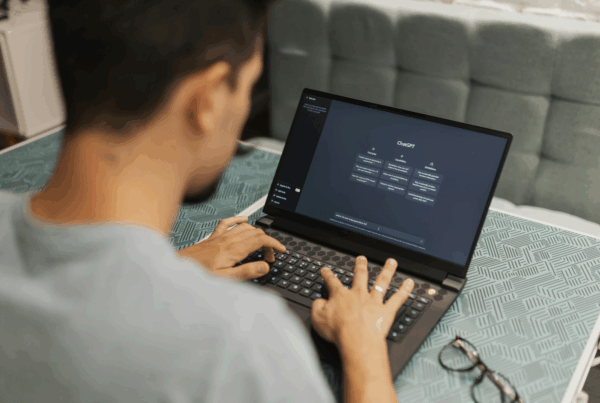
Endpoint security focuses on implementing solutions tailored to a business’ cybersecurity needs so that employee devices can connect to the business’ network safely. This means an employee can access the company’s network from the office, their home, or on the go through a secure connection that allows the business to verify the endpoint is not malicious or compromised. Endpoint security solutions focus on preventing unauthorized connections, identifying malicious activity in real-time, automatically remediating threats, and providing useful analytics to the business’ IT team or consultant. As where work gets done becomes increasingly flexible, endpoint security is critical to strong cybersecurity posture and stable business operations.
What is an Endpoint?

An endpoint is any device that establishes a connection with the company network. This includes laptops, phones, printers, smart devices, and other machines. While the most common endpoints are the computers employees use to get work done, businesses must account for all kinds of endpoints that connect to the network. This is because hackers will take advantage of any endpoint they can find, and a single access point can lead to larger attacks on the company. Endpoint security must cover every connection to the network because attacks have been launched against companies by leveraging old employee accounts and smart devices inside the office.
Elements of Endpoint Security

With the rise of remote work and how common bring your own device (BYOD) policies have become, endpoint security must be able to protect devices no matter where they are in the world. How a business strategizes its endpoint security will depend on where employees are working and how sensitive the data being accessed is. For example, remote workers that do not come into the office will need layered security that can protect their connection while on the go. This means they will need at least endpoint protection software, a virtual private network (VPN), and multifactor authentication (MFA) on their account.
Security Solutions for Endpoint Security

Every business has a unique IT environment that requires different security solutions to have the best endpoint security. Central offices can consider next-generation firewalls, endpoint detection and response (EDR), and network detection and response (NDR) solutions to provide an appropriate level of network monitoring and endpoint security for their network. Your security solutions should provide contextual data when cybersecurity events occur, so your IT team can make informed decisions on how to improve the company’s endpoint security to handle the threats in your industry. It is recommended to work with an IT consultant to plan your endpoint security if you’re unsure of the services your staff needs to safely work remote.
Summary
Establishing strong endpoint security for your company can be a challenge to get right. Hackers will use any unsecure connection they can to access your business’ network and launch attacks or steal data. Protecting your endpoints requires a layered approach to security that takes into account where your employees work and the devices they use. That’s why our team of IT specialists want to help your small business establish the best endpoint security for your situation. The Robinett Consulting team will get to know your business and its security needs, so we can provide customized and on-going support for your network as your business grows and changes over time.




